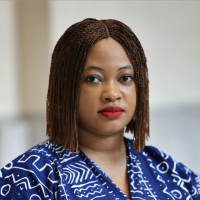As Uganda approaches elections in 2026, the digital landscape is transforming the political environment, particularly among the youth. The youth demographic constitutes 78% of Uganda's population. The surge in mobile internet usage has catalyzed a shift from traditional political campaigning to digital strategies. These new approaches leverage social media, memes, and viral content, marking a significant evolution in political messaging. The combination of young digital users with increased access and innovative engagement strategies is creating new electoral dynamics in Uganda. These dynamics are creating new connections at the same time as they enable the spread of misinformation.
Increasing Electoral Engagement Online
The number of Ugandan internet and social media users has increased dramatically in recent years, reflecting a broader trend across Africa. Social media platforms like Facebook, X, and mobile messaging apps like WhatsApp have become crucial for political communication. These platforms allow candidates to reach voters directly online and mobilize support.
This digital transformation is empowering young voters to engage with political content in previously unavailable ways. In the United States, a significant digital transformation occurred in 2008, when it was recorded that a majority of American adults used the internet to take part in the political process or get news and information about the election. This digital shift impacted on how candidates engaged with voters, especially young voters. For instance, the Obama campaign's use of social media and digital tools reached 5 million supporters across 15 social networks. More recently, during the 2020 US presidential election, the #VoteByMail campaign on social media platforms significantly boosted voter engagement. The campaign contributed to an increase in mail-in voting by 24.5%. This surge was particularly pronounced among young voters, with 30% of voters aged 18-29 casting mail-in ballots in 2020 compared to just 15% in the previous election.
Similarly, in Uganda, the #UgandaDecides hashtag emerged as a digital rallying cry during the 2016 presidential election, providing a virtual “town square” for Ugandans, particularly the youth, to debate policies, discuss candidate platforms, and encourage voter participation outside traditional media. It became a tool for citizens to influence online political discourse, showcasing Twitter's role as a participatory platform. The hashtag's resurgence in the 2021 elections and recent use in the lead up to elections in 2026 (#UgandaDecides2026) underscores the hashtag and online forums’ ongoing significance in mobilizing young people and shaping political debate for the upcoming election. This trend reflects young Ugandans' enduring commitment to active political engagement.
Misinformation and Data Targeting
While these online discussions were vibrant and engaging, they also presented challenges. The spread of misinformation was a significant concern, as unverified claims could rapidly go viral. Platforms were inundated with false allegations about election rigging and voter fraud. These unsubstantiated claims spread quickly through platforms like WhatsApp and Facebook, undermining public trust in the electoral process.
This phenomenon is not unique to Uganda. In the United States, the proliferation of misinformation on social media platforms has also been a major concern during elections. During the 2016 US presidential election, for instance, the hashtag #Pizzagate gained traction, promoting a baseless conspiracy theory. This false narrative spread rapidly across social media platforms, demonstrating how quickly misinformation can go viral and potentially sway public opinion.
Similarly, social media algorithms, like Facebook's EdgeRank or X's machine learning model, can create echo chambers that reinforce political divisions. These algorithms analyze user behavior—including likes, shares, and time spent on posts—to determine what content to show in a user's feed. This personalized curation often leads users to see information aligning with their beliefs, potentially causing confirmation bias and increased polarization.
Microtargeting, a strategy that involves tailoring political messages to specific voter segments based on their online behavior and demographics, has emerged as a controversial yet powerful tool in digital campaigns. This approach allows for highly personalized communication, potentially increasing the effectiveness of campaign messaging. The Cambridge Analytica scandal in the US revealed how the company had harvested personal data from millions of Facebook profiles without users' consent, using this information to create detailed voter profiles for targeted political advertising. This incident sparked a global debate about data privacy and the ethical implications of microtargeting in political campaigns.
Using targeted strategies raises significant ethical concerns about privacy and potential voter manipulation through sophisticated profiling techniques. There is growing unease about collecting and using voters' personal data without their full knowledge or consent. This data could potentially exploit psychological vulnerabilities or spread misinformation. These practices call for a regulatory framework that balances free expression and the need to combat misinformation and protect voter privacy.
Regulation, Privacy, and Misinformation in the Future
As Uganda navigates the digital political landscape, key institutions like the Electoral Commission (EC), Uganda Communications Commission (UCC), and the National Information Technology Authority (NITA-Uganda) are working to regulate new campaigning methods. However, the rapid progression of technological change often outpaces these regulatory efforts.
Ensuring transparency in digital campaigning remains a primary concern. The shift to online political messaging has made it challenging for regulators to monitor and enforce fair practices, especially when it comes to protecting voter privacy. The UCC has taken initial steps by issuing guidelines for media use during elections, including fact-checking and responsible reporting provisions. However, more comprehensive legislation, similar to the European Union's Code of Practice on Disinformation, could further strengthen these efforts.
Similarly, Uganda's Data Protection and Privacy Act of 2019 provides a framework that could be adapted to address campaign-related data issues. Implementing regulations akin to the European Union's General Data Protection Regulation (GDPR) could enhance voter privacy protections. Initiatives like NITA-U's National ICT Initiatives Support Programme (NIISP) could be expanded to include modules on evaluating online political content.
Uganda could also benefit from the United States’ Declaration for the Future of the Internet, which commits signatories to an open, free, global, interoperable, reliable, and secure Internet. Furthermore, the US government's Advancing Technology for Democracy (AT4D) initiative could offer lessons and potential partnerships as Uganda navigates its digital political landscape.
The digital revolution in political campaigning heralds a new era of civic engagement. This transformation, driven by increased mobile internet usage and social media influence, has the potential to invigorate Uganda's elections, particularly among its youth. By embracing innovative digital strategies while addressing challenges like misinformation and microtargeting, Uganda can advance a model of digital electioneering that balances technological advancement with electoral integrity. The 2026 elections offer a unique opportunity for Uganda to display how African electoral processes can harness the power of digital platforms to foster transparent, inclusive, and dynamic political processes, setting a precedent for the region and beyond.







